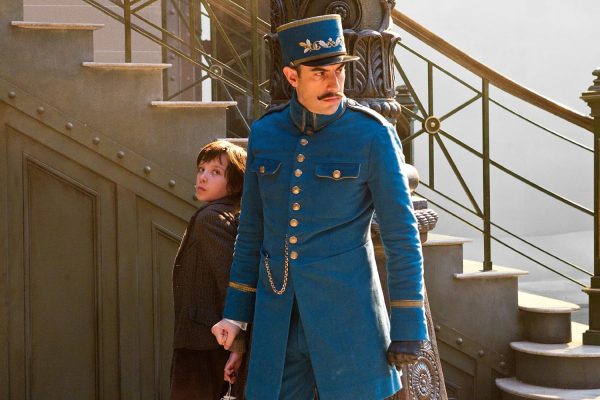Short-Run Series vs. Long-Haul: How Should Media Companies Approach Streaming Series
In the world of television, two types of shows dominate the airwaves: long-running series and short-running series. Long-running shows like The Simpsons (746 Episodes), Breaking Bad/Better Call Saul (125 Episodes), The Office (201 Episodes), Grey’s Anatomy (400 Episodes), and Star Wars: The Clone Wars (133 Episodes) have captured the attention of viewers for years while short-running shows like The Mandalorian (24 Episodes), Wednesday (8 Episodes), The White Lotus (13 Episodes), The Falcon and The Winter Soldier (6 Episodes), Ted Lasso (28 Episodes), and Obi-Wan Kenobi (6 episodes) have recently made waves in the industry.
The question is, which type of show is better?
Naturally, short-running series are superior to long-running ones due to their more accessible length of time, greater casts, and fantastic quality despite fewer episodes. Their lack of duration in short series’ in 2023 compared to other long series’ have charm and the correct flow from plots to character development the shows of this era can undoubtedly out compete with shows running for several seasons.

First and foremost, short-running series have the luxury of telling a complete story within a limited time. This means that every episode counts and has a purpose. As a result, there’s no filler content, and the pacing is often tighter, which keeps the audience engaged throughout the entire series. Take, for example, The White Lotus, a recent HBO limited series that aired over the summer. The show had only six episodes, each packed with character development, plot twists, and sharp dialogue. The showrunner, Mike White, had a clear vision of what he wanted to accomplish and executed it flawlessly.
On the other hand, long-running series often need more focus and direction. They start out strong but then meander and lose their way, with the quality of writing and storytelling suffering. The Simpsons is a prime example of this. The show was brilliant in its early years but increasingly relied on cheap gags and recycled plotlines as it continued. The show is still on the air today but is a shadow of its former self.
Another advantage of short-running series is that they attract top-tier talent. A-list actors, directors, and writers are often drawn to limited series because they know that the quality of the content will be high and the commitment will be limited. Ted Lasso is a perfect example of this. The show’s star, Jason Sudeikis, is a respected comedic actor who has appeared in films like We’re the Millers and Horrible Bosses. He brought his unique humor and charm to the show, which helped it stand out in a crowded marketplace.
On the other hand, long-running shows can only attract top talent if the time commitment is so great. It takes a lot of work for an actor or writer to commit to a show that could last for years. And even if they do commit, they may become burnt out or disenchanted with the show over time.
While long-running shows have positives, short series’ like the epic three-season, The Mandalorian is considered an excellent show for various reasons. Firstly, it is set in the Star Wars universe, with a large and dedicated fan base. It was able to captivate audiences with its engaging storyline, compelling characters, and stunning visuals. In addition, the show has been praised for its cinematic quality, with many episodes feeling like mini-films. One of the reasons that The Mandalorian worked so well as a short series is that it had a clear and focused storyline. The showrunners could tell a complete story throughout two seasons and the current third season without the need for any filler episodes or unnecessary subplots. This allowed them to keep the pacing tight and the action intense, ensuring viewers were always invested in what was happening on screen.
Short-running series are simply better suited to the modern era of television. With the rise of streaming platforms like Netflix, Hulu, and Amazon Prime, viewers have more options than ever. They want to avoid committing to a show that requires dozens of hours to catch up on. Instead, they want to be able to binge-watch a series over a weekend and move on to the next one. Short-running series, with their concise storytelling and limited time commitment, is perfect for this new era of television.

Short-running shows are more closely related to films than long-running shows for several reasons. First, the short series has a concise story, beginning, middle, and end, similar to theater films. The straightforward plot often ties up loose ends quicker than shows running for 5+ seasons due to less time for explanation. The long-running shows tend to become convoluted and difficult to follow if not done correctly, furthering the need for a concise plot. Short series’ have lower budgets and less time to produce their show. As a result, every aspect of the production, from the writing to the set design, must be executed at a high level to make the series stand out. This is similar to films with higher production values than long-running shows.
While long-running series like The Simpsons, Breaking Bad, The Office, Grey’s Anatomy, and Star Wars: The Clone Wars have their merits, they can’t match the focused storytelling and top-tier talent that short-running series like The White Lotus, The Falcon, The Winter Soldier, Ted Lasso, and Kenobi bring to the table. Short-running series are better suited to the modern era of television and offer a more satisfying viewing experience overall. In many ways, they are more similar to films than long-running television shows. So watch a limited series if you’re looking for your next binge-watch. You won’t be disappointed.
My name is Eli Ruderman, I am a Senior and a journalist for the Taft Tribune. I am a writer, filmmaker, and sports fan.











